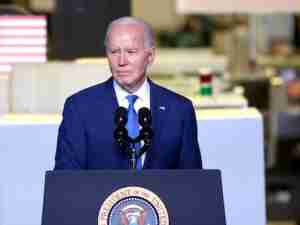On January 19th, a coalition of climate and environmental justice organizations will gather outside of the America's Energy Summit and Exhibition to protest the proliferation of liquified natural gas (LNG) export facilities. The protest marks the end of a week of distributed actions to directly confront fossil fuel executives and send the message that LNG projects are not welcome in local communities.
Tomorrow’s action is part of a broader movement fighting LNG exports, specifically calling on the Biden Administration and Department of Energy to stop Calcasieu Pass 2 (CP2) – the next big facility up for approval – and all other facilities by committing to a serious pause to rework the criteria for public interest designation, incorporating the latest science and economics, before any such facility is permitted.
As public scrutiny of these projects has grown, the Administration now has an opening to live up to its pledges. Over 300,000 people have signed petitions demanding a stop to LNG approvals, and videos opposing the export terminals have garnered more than 12.5 million views on social media. Leading scientists and members of Congress have also spoken out against the staggering scale of the expansion.
The protests in New Orleans lead up to a national convergence in Washington D.C. from February 6-8, where movement leaders will sit-in at the Department of Energy headquarters to pressure President Biden to pause permits for LNG export facilities. The Administration has indicated it is re-evaluating the approval process for these projects, but leaders aim to ensure promises turn into action.
The planned LNG buildout, which includes over 20 new export facilities from Texas to Florida, would unleash emissions equivalent to over 850 coal-fired power plants – more than the entire European continent. The facilities threaten the local economy, where fishermen fear the buildout will destroy their way of life, harm local ecosystems and public health, and raise energy costs. This massive proposed expansion of fossil fuel infrastructure represents a key test case for the Biden Administration's commitments to environmental justice and climate action.
“Give a man a fish, and he will eat for a day. Teach a man to fish he will eat for a lifetime. Give a fisherman LNG and he will starve to death,” said Travis Dardar, an Indigenous fisherman from Cameron Parish and founder of Fishermen Involved in Sustaining our Heritage (FISH).
Activists have directly appealed to the White House, with frontline leaders from Louisiana delivering over 250,00 petitions to the Department of Energy in late 2023 demanding an end to LNG approvals. LNG protests also continue to ramp up globally, following hundreds of demonstrators gathering at November’s COP28 climate summit to criticize the industry's effort to undermine critical climate goals. Billboards have also gone up in Wilmington, Delaware, across from Biden's 2024 campaign headquarters, recalling President Biden’s decade-long effort as a Senator to safeguard Delaware’s beaches and demanding he provide the Gulf Coast the same protections.
“It's time to kick polluters out of Louisiana. Their reckless actions are polluting our air and water, endangering the health of our children. At the America's Energy Summit, we bring a powerful message: they have overstayed their welcome, and we will not rest until they are gone. Our fight to protect our environment and the well-being of our communities will continue, unwavering and determined,” said Roishetta Ozane, community leader in Sulphur, Louisiana, and founder of the Vessel Project








